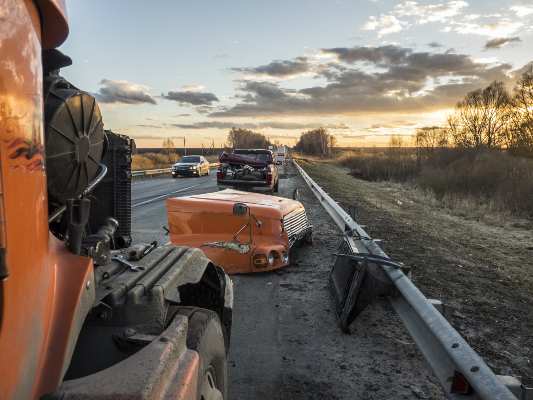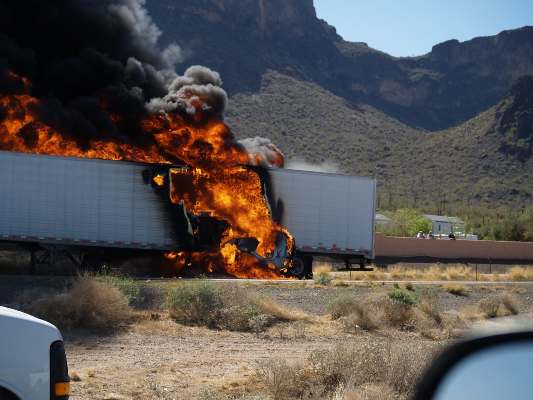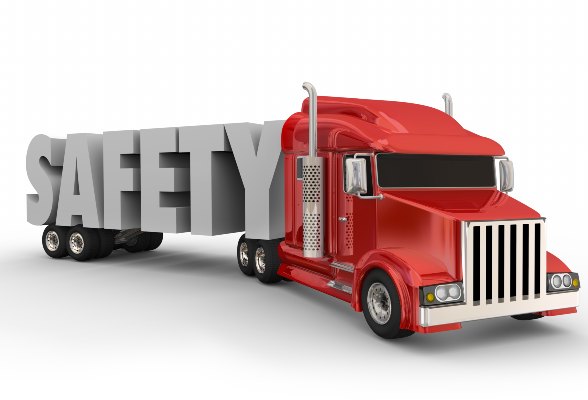In the sad and unfortunate event that you or someone you love suffers injuries in a truck accident, you will be forced to go up against two distinct parties: the trucking company and the driver of the truck. This is among the several reasons why suing a driver personally following a crash involving a commercial truck is more complicated than suing a typical driver.
Note: While filing a lawsuit after a truck accident is always a viable legal option, there are alternative ways to go after the compensation you deserve without going to court.
While this blog aims to help you understand your legal options following a truck accident in Florida, speaking to a seasoned Orlando truck accident attorney is the #1 way of having all your questions and worries addressed.

Before filing any lawsuit following a truck accident in Florida, it is imperative that you first figure out who was at fault for the truck accident. In a vehicle accident, the at-fault party is the person or entity whose negligent behavior or malicious mannerisms caused an injury and is liable for the damages.
In regular auto accidents such as a motorcycle accident, the at-fault party is usually the driver of the other vehicle. Truck accidents are unique are intricate in that multiple parties can be held liable for the crash, including:
As clearly pointed out, there are multiple parties involved in the process of ensuring that large, bulky commercial trucks operate safely on the road. Sometimes, one party shoulders full liability. On other occasions, multiple parties share responsibility for the crash.
Given that multiple parties might have been responsible for your accident, your Orlando truck accident attorney must investigate and review the specific circumstances and facts surrounding the truck accident. This will usually encompass examining truck maintenance logs, cargo records, witness statements, police reports, employee records, truck driver logs, camera footage, drug test results, and so on.
After you've identified the party responsible for the truck accident, you can set your mind and resources on the best course of legal action to take. Generally, the first step involves filing a personal injury claim with the at-fault party's insurance provider.

Once you're done with the personal injury claim, the insurance firm has a limited time to respond. They can either accept the claim and start processing a settlement offer, make a counter-offer, or deny your claim altogether. Often, they will make a counter-offer with a low settlement in the hopes of getting you to settle quickly for less. While the initial settlement might seem tempting, never accept the first offer!
When presented with a lowball offer, an attorney can help negotiate for a higher amount. If your attorney and the insurance company come to an agreement, you will accept the offer and receive your compensation. A majority of injury cases, even those involving commercial trucks, end here. However, if the negotiations fall through, you may need to pursue a lawsuit.
If an agreement can't be reached during the negotiation stage, or if the insurance firm is stubborn and denies your claim despite its validity, then you may have no choice but to file a lawsuit. Considering that lawsuits present new challenges, this isn't a decision you should make alone. Carefully evaluate the pros and cons of filing a lawsuit with an Orlando truck accident attorney.
Depending on the facts and unique circumstances surrounding your accident, you may have to sue the driver of the truck personally. In other instances, you might have to sue all parties responsible for the accident simultaneously.
If a trucking company employs the driver of the commercial truck, then that trucking company is normally accountable for their employee's (the driver) actions while driving on the clock. Sometimes it makes complete sense to sue the driver of the truck directly. A perfect example of such a case is where the truck driver was violating traffic rules or trucking regulations or behaving maliciously.
If the truck driver was not an employee of the trucking company, but instead is an independent contractor, chances are they own very few assets. In a case like this, you may have an extremely tough time recovering the full compensation you're entitled to. Under such circumstances, you'll want to consult an Orlando truck accident attorney to discuss whether suing the driver personally is a smart option.
Suppose it is established that the driver of another vehicle was at fault for the truck accident and not the truck driver. In that case, you can still sue the other driver. While such cases are not common, they can happen. Here, you will need to lodge a personal injury claim with the other driver's insurance company.
In truck accident cases involving multiple at-fault parties, each party will hold a particular degree or percentage of responsibility for the crash. Figuring out each party's percentage of fault plays a vital role in helping settle cases involving heavy commercial trucks where multiple parties can bear some degree of liability for the accident.

In Florida, you can still recover compensation even if you were mostly at fault for the accident. However, your compensation will be reduced according to your percentage of fault. For example, if you are found to be 70% responsible, you can only recover 30% of your damages from the other party. This is known as pure comparative negligence. Note that different states have different negligence laws, so make sure you speak with a local attorney to determine if you are eligible for compensation.
Do you have questions and concerns regarding your truck accident case? Contact VG Law Group, LLP today. Our attorneys will review your case's details and explain the legal options available to ensure you recover maximum compensation.
Call us today at 1-833-HELP-365 or chat with us online to schedule your FREE consultation.